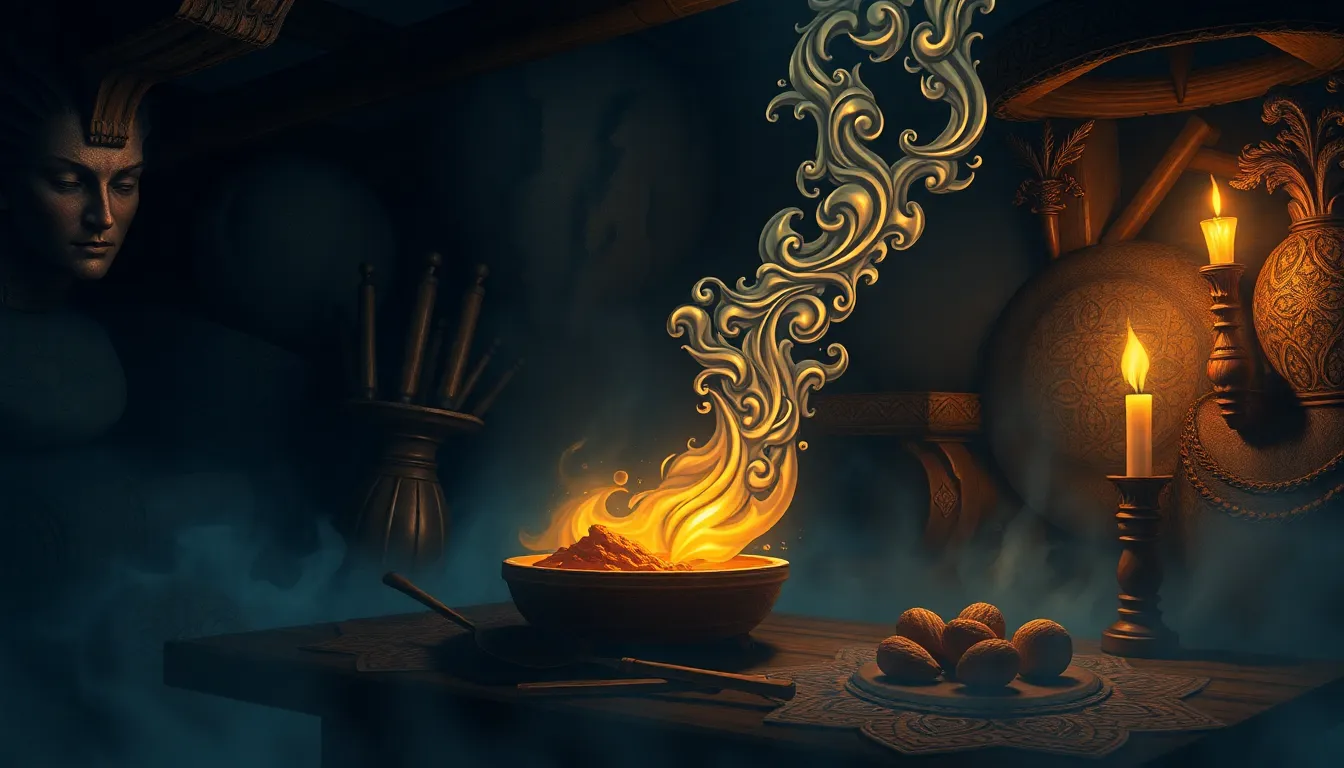The Quest for the Ancient Recipe: Myths of Culinary Magic
Introduction: The Allure of Ancient Recipes
The world of culinary traditions is rich with history, infused with stories that have been passed down through generations. The allure of ancient recipes captivates the imagination, drawing food lovers and historians alike into a realm where each dish tells a tale of culture, survival, and creativity. These ancient culinary practices often intersect with myths, weaving a complex tapestry that showcases humanity’s relationship with food.
The Origins of Culinary Myths
Many ancient civilizations, from the Egyptians to the Romans, developed unique culinary practices that are steeped in myth and folklore. These origins provide a fascinating insight into how food was perceived in different cultures and how it shaped social structures, economies, and rituals.
- Ancient Egypt: The Egyptians believed that the gods provided them with grains and fruits, and thus, bread and beer were considered sacred.
- Greek Mythology: From ambrosia, the food of the gods, to Dionysian feasts, Greek myths highlight the divine connection to culinary delights.
- Chinese Folklore: Many traditional dishes are accompanied by stories that explain their origins, often involving dragons or deities.
These stories not only enriched the culinary practices but also served to reinforce cultural identities and values, intertwining the sacred with the everyday act of cooking.
Legendary Recipes: Tales from Around the World
Throughout history, certain recipes have achieved legendary status, becoming symbols of culinary magic. Here are a few notable examples:
- Ambrosia: In Greek mythology, this divine food granted immortality to the gods and was said to bestow health and longevity to mortals who consumed it.
- The Elixir of Life: Alchemists sought this mythical potion, believed to grant eternal life and perfect health, often associated with various herbal concoctions.
- Philosopher’s Stone: While primarily an alchemical concept, it also inspired recipes that aimed to transform base ingredients into something extraordinary.
These recipes are more than just food; they embody the cultural significance of storytelling and the age-old quest for something greater than ourselves.
The Role of Alchemy in Cooking
Alchemy, often seen as a precursor to modern chemistry, played a significant role in the culinary practices of ancient societies. Alchemists believed that the transformation of ingredients was akin to a magical process, blurring the lines between science and sorcery.
- Transformation of Ingredients: The alchemical process often involved the combination of elements to create something entirely new, much like cooking.
- The Philosopher’s Stone: This legendary substance was thought to turn lead into gold, symbolizing transformation—a theme prevalent in cooking.
The interplay between alchemy and cooking reflects a broader understanding of the world, where every ingredient has the potential for transformation, both physically and metaphorically.
The Quest for the Perfect Recipe: Culinary Pilgrimages
Throughout history, many chefs and food enthusiasts have embarked on culinary pilgrimages in search of legendary recipes. These journeys often lead to the discovery of ancient cooking techniques and ingredients that have been forgotten over time.
- Modern Chefs: Renowned chefs like Ferran Adrià and René Redzepi have traveled the globe, seeking inspiration from ancient culinary practices.
- Food Documentaries: Programs like “Chef’s Table” showcase the journeys of chefs who replicate ancient dishes, preserving the stories behind them.
This modern quest mirrors the historical journeys of merchants and explorers, who sought spices and ingredients that would influence cuisine worldwide.
Culinary Magic: Rituals and Superstitions
Cooking is often accompanied by rituals and superstitions, which vary widely across cultures. These practices highlight the belief in the magical properties of certain ingredients and the importance of intention in cooking.
- Salt: In many cultures, salt is considered a purifying agent and is often sprinkled to ward off evil spirits.
- Herbs: Certain herbs, such as basil and rosemary, are believed to possess protective qualities and are used in various culinary rituals.
These rituals not only enhance the cooking experience but also connect the cook to their cultural roots, adding a layer of meaning to the act of preparing food.
The Science Behind the Myths: Truth or Fiction?
As we explore culinary myths, it is essential to investigate the scientific basis behind some of these age-old beliefs. Modern science can often validate or debunk traditional practices.
- Fermentation: The ancient practice of fermenting foods has been scientifically shown to enhance flavors and preserve ingredients.
- Medicinal Properties: Many herbs and spices used in ancient recipes have proven health benefits, bridging the gap between mythology and science.
This relationship between traditional practices and modern culinary techniques enriches our understanding of food and its role in our lives.
Preserving Ancient Recipes: Challenges and Opportunities
In an increasingly globalized world, preserving ancient recipes poses both challenges and opportunities. Traditional cooking methods risk being overshadowed by modern conveniences and fast food culture.
- Globalization: The spread of global cuisine often leads to the dilution of traditional practices.
- Documentation Efforts: Organizations and chefs are working to document and revive ancient culinary practices, ensuring they are not lost to time.
These efforts are crucial in maintaining the richness of culinary history and passing it on to future generations.
Modern Interpretations of Ancient Recipes
Contemporary chefs are increasingly reimagining ancient recipes, blending old techniques with modern ingredients to create innovative dishes.
- Fusion Cuisine: The combination of different culinary traditions often leads to exciting new flavors while respecting traditional methods.
- Farm-to-Table Movement: This modern trend emphasizes local ingredients, echoing ancient practices of using what is available in the environment.
This fusion of old and new not only honors the past but also reflects the dynamic nature of culinary arts today.
Conclusion: The Enduring Legacy of Culinary Myths
The quest for ancient recipes is more than just a journey into the past; it is a reflection of our ongoing relationship with food and culture. As we explore the myths and stories surrounding culinary practices, we recognize the importance of preserving this rich heritage.
The enduring legacy of culinary myths continues to inspire chefs and home cooks alike, inviting us all to partake in the magic of cooking. Whether through traditional methods or modern reinterpretations, the quest for culinary magic remains a vital aspect of our shared human experience.



